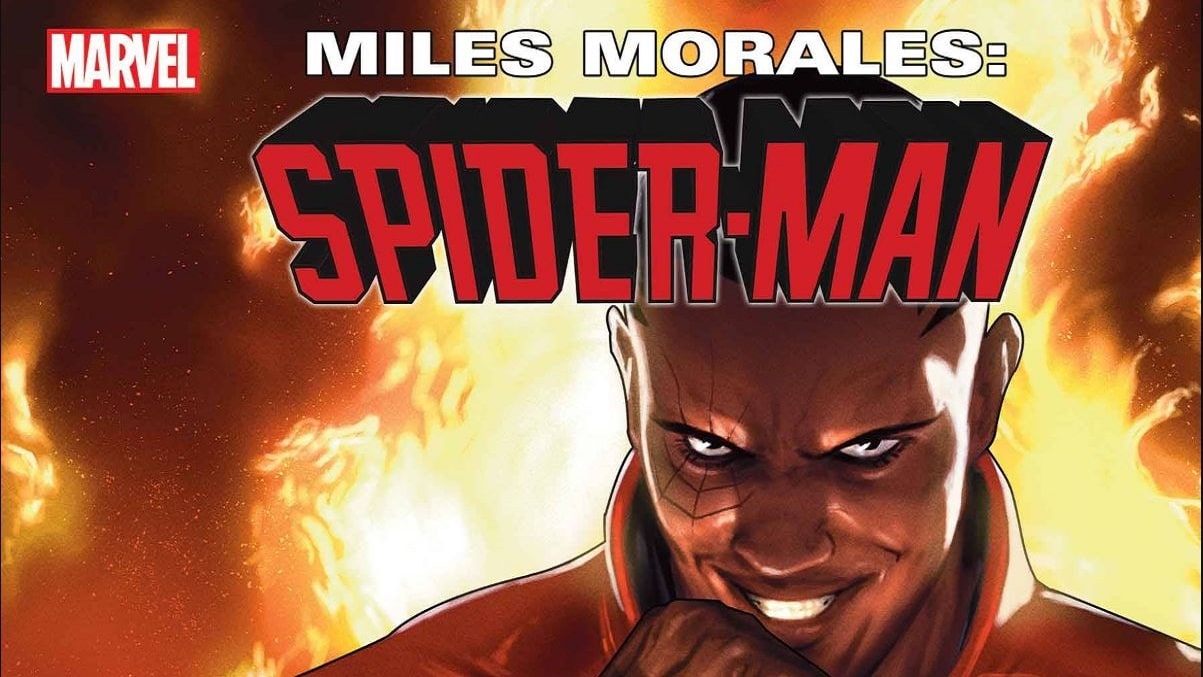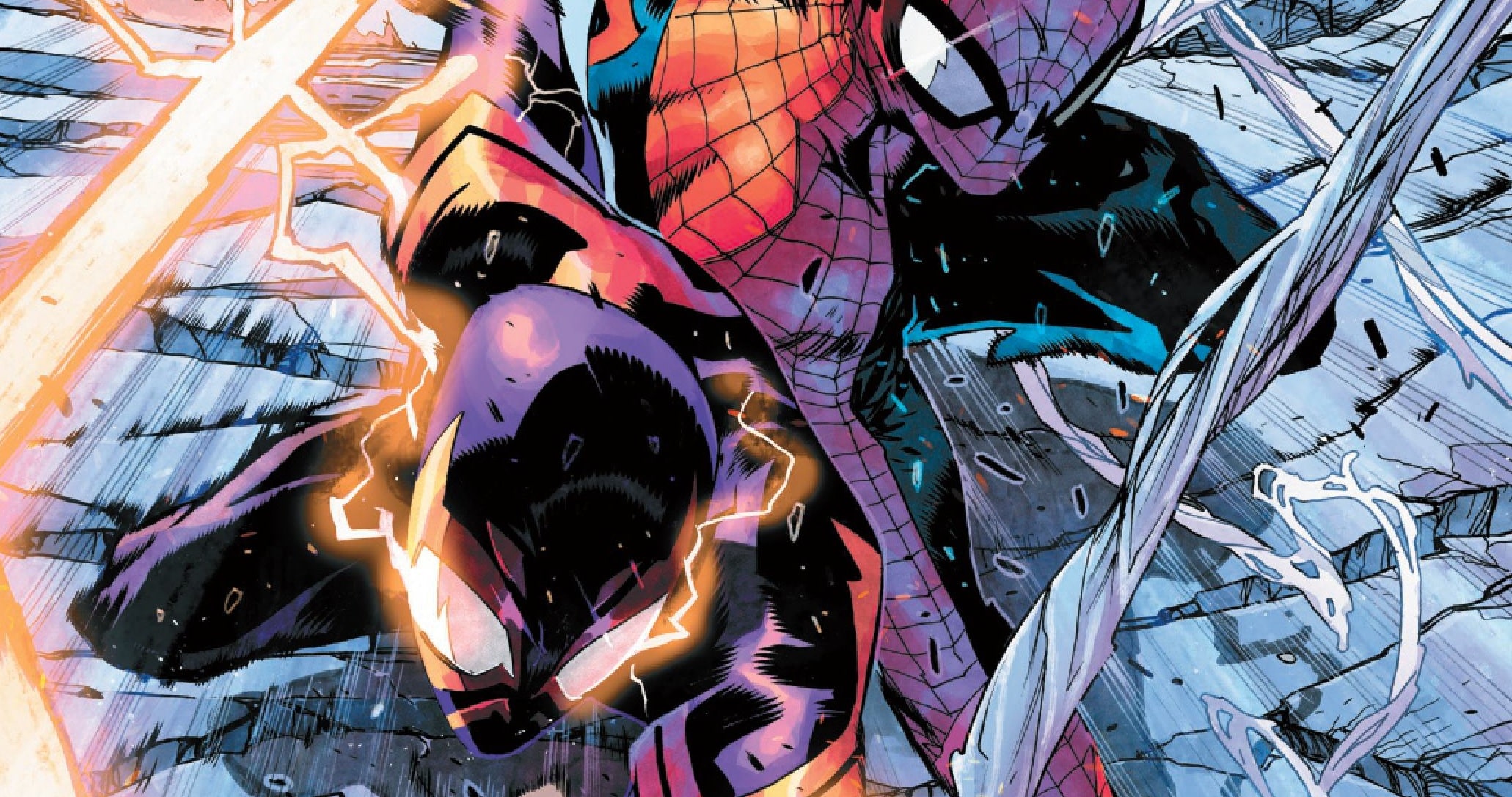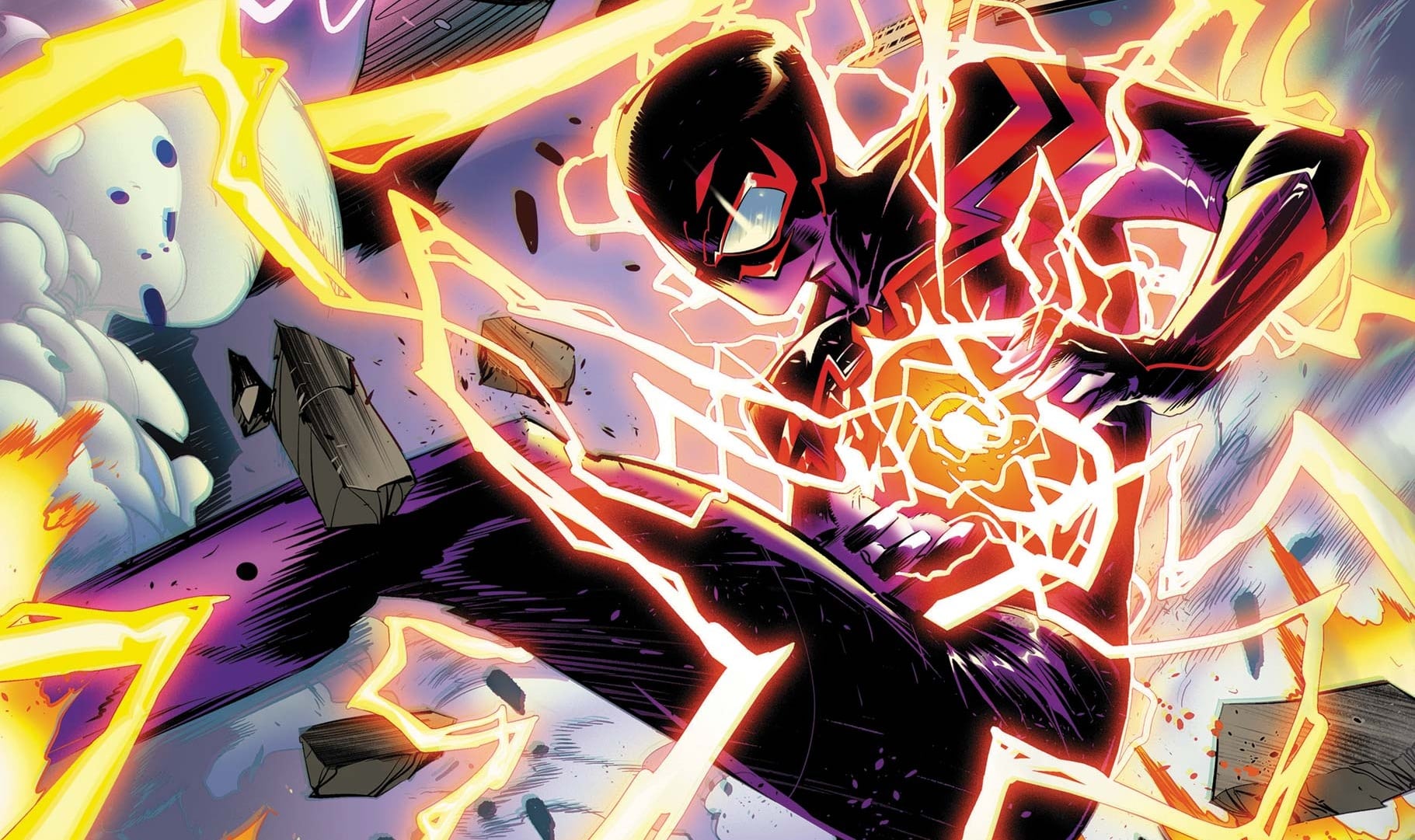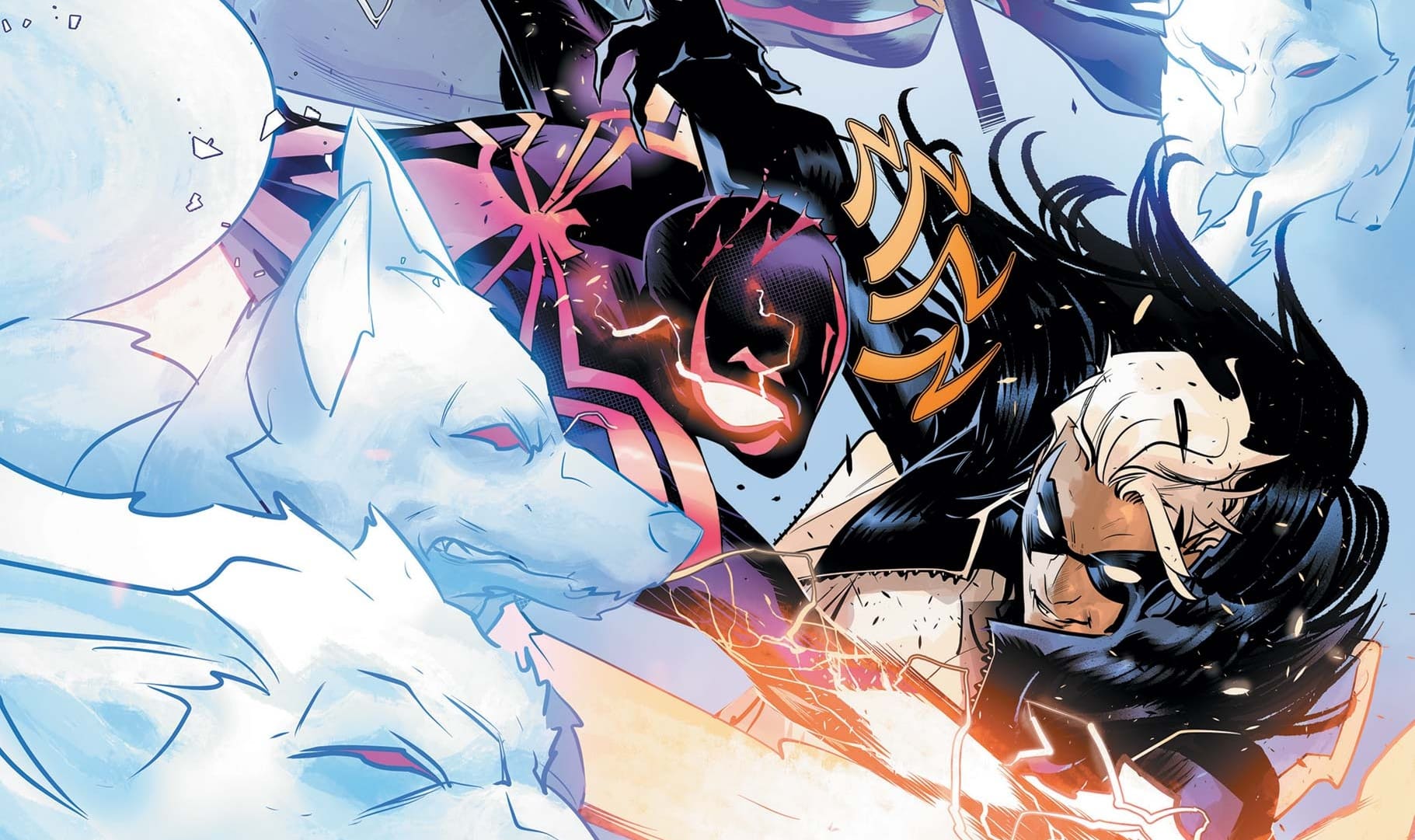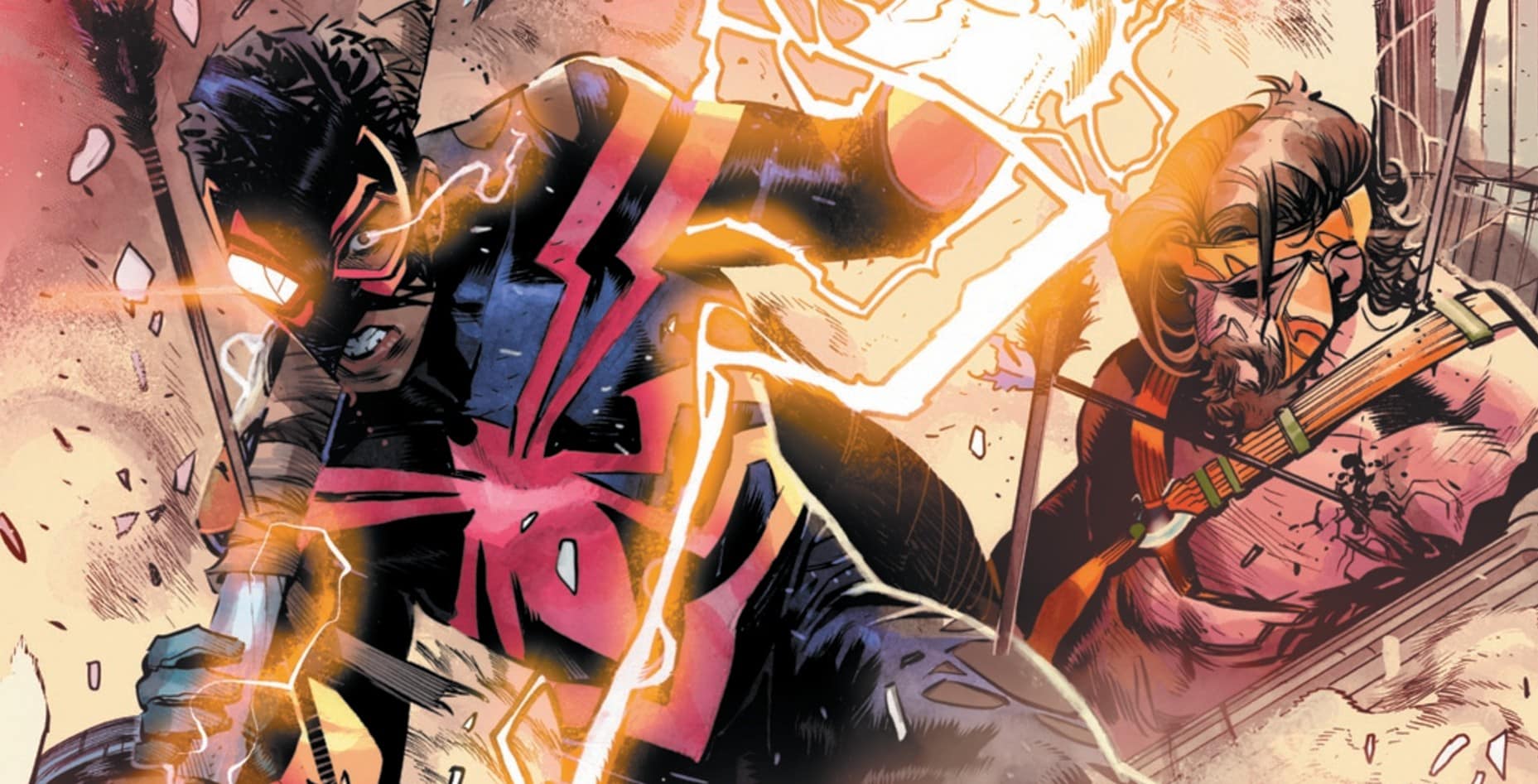Miles Morales #39 doesn’t really ask a lot of questions – not explicitly. I’d argue it’s not concerned with asking or pausing at all – this issue is about momentum. And you know, that’s okay. Sometimes you can’t do and think at the same time. Sometimes doing is enough. And Miles Morales #39 does quite a bit.
We see a time/universe/dimension traveling Miles end up in a timeline where his cloned evil twin Selim captures Brooklyn. A rag-tag team consisting of his grown up sister and even more grown up best friend Ganke maintain a resistance and, with Miles’s help, plan to overtake Selim’s Empire of the Spider.
(No, really, that’s what they’re calling it.)
Now while the comic itself isn’t asking many questions, I am. Like to hear them? Well here they go.
Why does every apocalypse look like some mix of Terminator 2’s first scene and Mad Max? Is it a lack of imagination? A shared, communal, prophetic vision?
I mean, have you looked outside lately? Who’s to say we’re not in the throes of the apocalypse already?
Who’s to say we would fight back, against it, and not spiral willingly towards oblivion?
Who says we fight with a bang instead of slither into death with a whimper?
Ok fine, I’m rambling, I digress.
I’m also right.
Also! Why are twins always evil? Why is the original never the evil twin? Why do we assume the first to appear always has the moral center?
And of the evil twin Selim: Does he not have the right to be very, very, angry? Of course I’m not saying murder is right; Selim’s actions are clearly negative and evil. I am saying that as an allegory for another side of Miles, I wonder if there wasn’t a way of giving Selim’s (justified) anger a more thoughtful outlet. He is a person who didn’t ask to be born, who was tortured and left to die. He deserves a more complex action/reaction matrix than a standard issue bad guy.
(Also, why would you want to take Brooklyn when rents are higher in Manhattan? Really unwise market strategy.)
Speaking of bad guys, or at least guys whose presence isn’t necessarily good: Why is Peter Parker here? Why is he always centered in Miles’ journey? In this case, Peter is being used as lifeblood (literally) for the evil twin, gives exposition, and fends off the bad guys single-handedly,
After sitting down for twenty years straight. (No really, that’s what they said.) Right.
I’ve said it before, and I’ll say it again: the dependence on Peter keeps Miles second-tier. It’s not necessary. Juneteenth just ended – free Miles from the shackles and shadow of Parker Spidey.
And of the look of the work: why does it not really work for me? Fight scenes are artist Foche’s forte. They’re good! You can follow the action, and the characters have cool poses. It meets – but, crucially, does not exceed expectations. Sadly, outside of fight scenes, especially with close-ups of some faces, expectations are brutally, sadly, not met.
There are other questions to ask (who desired that Glurp would say glurp? Why do I get the sneaking suspicion that when all this is over, Glurp will stay in this universe where he’ll presumably find happiness and peace? Where are all the other heroes? How do I know this is going to end with Miles winning?), but I suspect the answer to most of these questions is pretty simple: the IP requires the character to live, unchanged.
And what is change but questioning the status quo with action?
Which, of course, is why Miles Morales doesn’t ask any questions; it doesn’t want any answers. It doesn’t want any change. It wants an easy to mold status quo
Thus I hope more people ask more questions. Maybe then we’ll have an answer that involves cliche-free growth.
A proud New Orleanian living in the District of Columbia, Jude Jones is a professional thinker, amateur photographer, burgeoning runner and lover of Black culture, love and life. Magneto and Cyclops (and Killmonger) were right. Learn more about Jude at SaintJudeJones.com.

